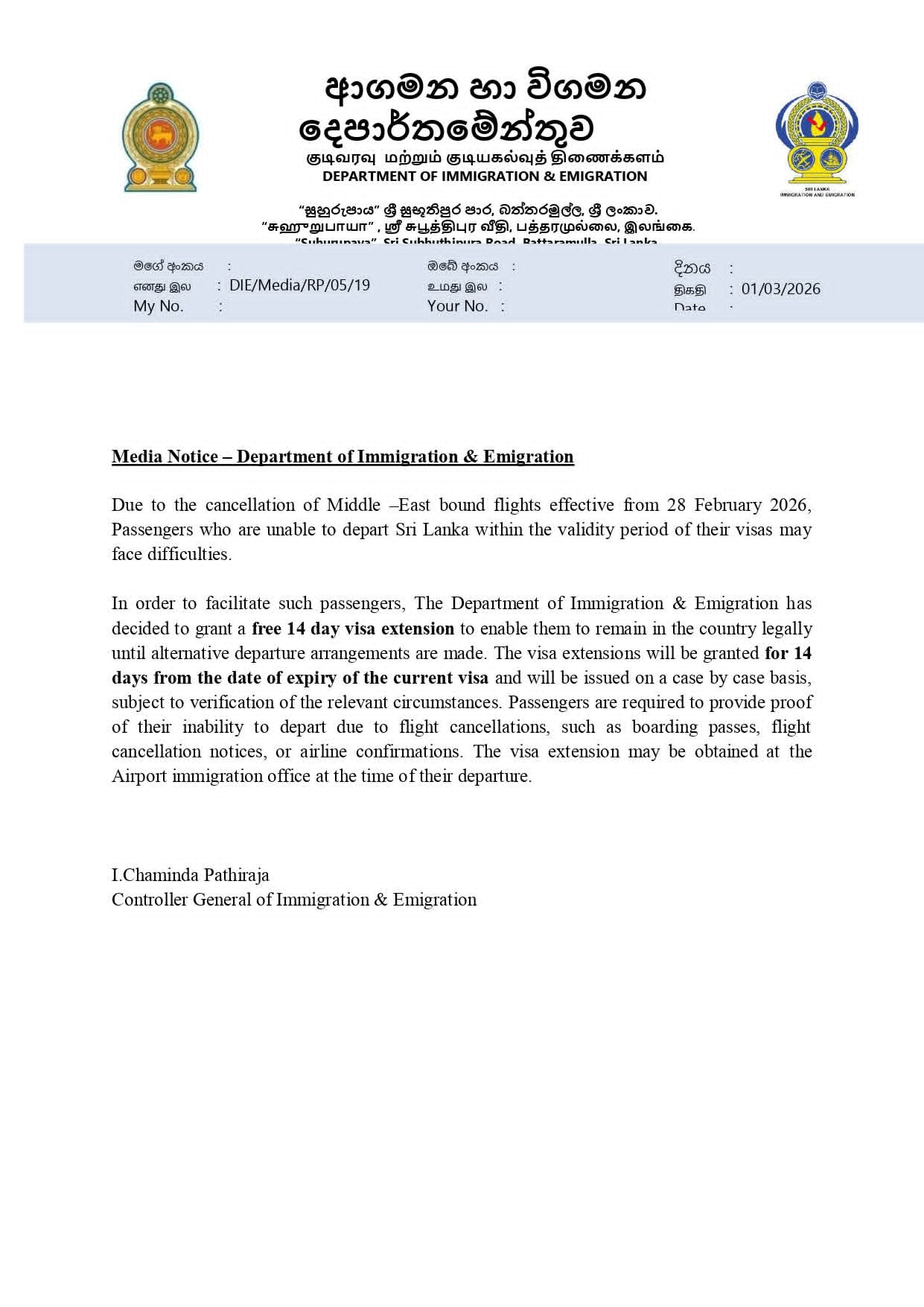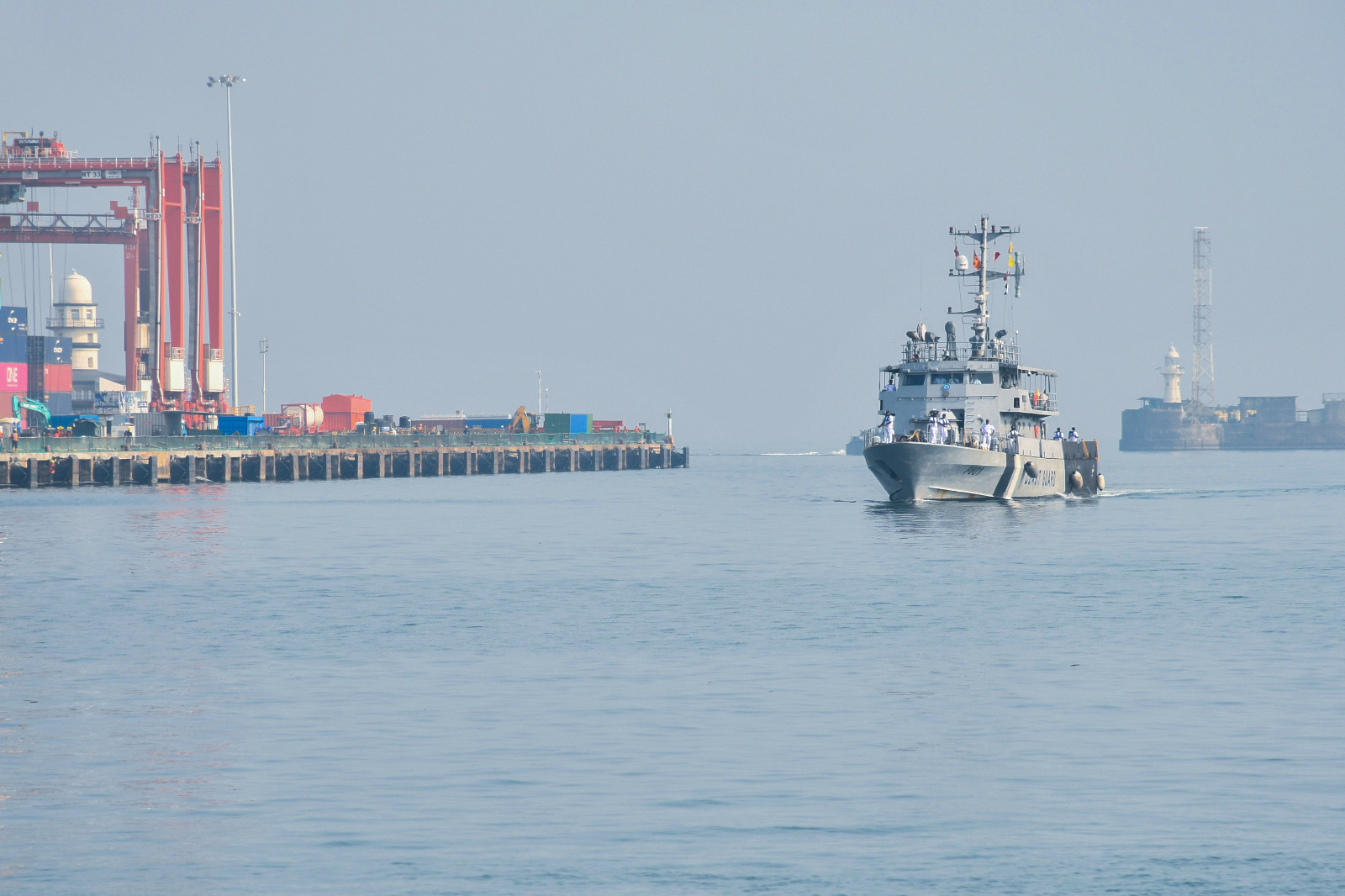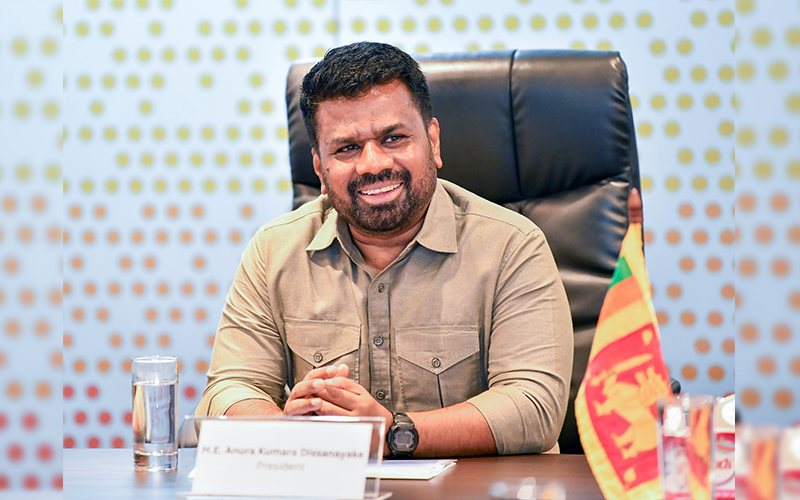News
Lanka won’t adopt reforms without int’l pressure – Japanese envoy

… corruption cited as one of the three issues faced by the country
Japanese Ambassador Hideaki Mizukoshi Thursday (21) urged Sri Lanka to turn the continuing economic, political and social crisis into an opportunity to achieve success.
The Ambassador said that the country should take advantage of the continuing external pressure to adopt reforms, build-up competitive industries and take tangible measures to overcome corruption. Among those present were President Ranil Wickremesinghe, Governor of the Central Bank Dr. Nandalal Weerasinghe and former Speaker Karu Jayasuriya.
Ambassador Mizukoshi dealt with post-war developments in Japan after the conclusion of the second world war, the late JRJ’s role in Japan’s reintegration into the international community and modern Japan and comprehensive reforms before he explained how Sri Lanka could draw from the Japanese experience to turn things right.
Addressing an event held at Granbell, Marine Drive, Colombo, by the Indian Ocean think tank Geopolitical Cartographer, Ambassador Mizukoshi highlighted the following issues (a) Taking advantage of External Pressure: Firstly, taking advantage of external pressure. Looking back at Japan’s history, most reforms in Japan that were achieved would not have been possible without pressure from the international community. The reformist leaders of Japan, whether during the Meiji restoration period or under occupation after WWII, had made wise decisions for the future of the country under foreign pressure.
Today, Sri Lanka is trying to reform the economic system under the agreement with the IMF. Reforms such as tax reform, electricity reform, or SOE reform may be challenging and not always popular with citizens. However, viewing the utilization of such external pressure for the betterment of the country should not be seen as a weakness but as a testament to the wisdom of leaders. India, which went into financial crisis in 1991, went through structured adjustment of the IMF and World Bank. The economic reforms achieved at the time transformed India into a fast-growing economy. From an international perspective, agreements with the IMF serve as backing for Sri Lanka’s commitment to pursuing rational and consistent economic policies. Japan would not have supported the debt restructuring negotiation of Sri Lanka without agreement with IMF, which assures the consistency of Sri Lankan economic policy.
(b) Building up Competitive Industries: 2nd lesson from Japan’s experience that I can think of is importance of building up a competitive industry for economic growth. Sri Lanka is now at a crossroads.
This economic crisis can be utilized as a golden opportunity to transform and grow. Japan’s experience of the economic miracle shows that it is important to formulate its industrial policy to foster a competitive export industry. What can be the strong and competitive industries for Sri Lanka?
Sri Lanka’s economy has stabilized under the IMF programme. The inflation was contained to single digit and the GDP growth turned positive from the 3rd quarter of the last year. I commend the immense efforts of the current government and the people of Sri Lanka to bring about this economic stability in a very short time. However, without a competitive export industry, once Sri Lanka lifts its import restriction, there is a possibility of foreign currency shortage happening again.
Therefore, after achieving the stabilization, it is essential to build up a competitive industry that can push sustainable development of the country. In building up industries, Sri Lanka may learn lessons from Japan’s industrial policies. It is important not to protect a loss making industry with government money out of favoritism but to ensure a smooth transition from uncompetitive industry to more competitive industry.
(c) Overcoming Corruption: Thirdly, I would like to touch upon corruption problems because it is a challenge both for Japan and Sri Lanka. Observing Sri Lankan politics since I came here, I would like to point out two aspects of problems of corruption in Sri Lanka.
First, corruption is a source of distrust of leaders of the country by the people, and it discourages people from being responsible citizens of the country when leaders are corrupt. It gives convenient excuses to tax payers for tax evasion.
Secondly, it is very harmful when Sri Lanka wants to attract foreign investment.
Foreign investors want a transparent and predictable business environment. Japanese companies are nowadays strictly observing the compliance obligation and therefore never offer bribes or kickbacks. If that kind of culture remains in Sri Lanka, there is no prospect of Japanese investment coming into Sri Lanka.
I am saying this because I would like to see more Japanese investment in Sri Lanka to support economic growth. I hope, in Sri Lanka, ongoing anti- corruption reforms draw lessons from various countries, including Japan, to develop effective anti-corruption mechanisms. We would like to strongly support on going Sri Lanka’s effort in this field and we are funding the UNDP project for the enhancement of the Commission to Investigate Allegations of Bribery or Corruption (CIABOC).
There are many other lessons that can be drawn from Japanese experiences and we are ready to provide opportunities for Sri Lankan people to learn from them through JICA and other means.
Latest News
Free 14 day visa extension for visitors unable to depart Sri Lanka

The Department of Immigration and Emmigration has decided effective from 28th February 2026, to grant a free fourteen (14) day visa extension to all tourists who are unable to leave Sri Lanka due to flight cancellations. 
News
Maldives Coast Guard Ship Huravee arrives in Colombo

The Maldives Coast Guard Ship Huravee arrived at the Port of Colombo for replenishment purposes on 02 Mar 26. The visiting ship was welcomed by the Sri Lanka Navy (SLN) in compliance with time-honoured naval traditions.
The ship is a 48.9m long Offshore Patrol Vessel which is commanded by Lieutenant Colonel Ahmed Nafiu Mohamed.
Meanwhile, the ship’s crew is scheduled to visit several tourist attractions in the city of Colombo, during their stay in the island.
News
AKD warns of far reaching economic consequences of Middle East war

President Anura Kumara Dissanayake yesterday called for an immediate and peaceful resolution of the escalating Middle East conflict, warning that the crisis could have far-reaching repercussions on the global economy, including Sri Lanka.
Addressing Parliament, the President stressed that no military conflict benefited humanity, particularly at a time when destructive military technologies were rapidly advancing.
“Any military conflict does not create a favourable situation for any group of people,” he said, urging all parties to make urgent commitments towards peace. “As Sri Lanka, our position is that all parties involved in this war must, as soon as possible, take steps toward a peaceful world.”
He cautioned that Sri Lanka could not remain insulated from the fallout from the conflict, noting that disruptions to global oil and gas supplies, threats to migrant workers in the Middle East, and potential shocks to tourism, remittances, shipping and aviation were real concerns.
A national programme was being formulated to mitigate the impact, he said, adding that its success would hinge on broader international efforts to restore stability, the President said.
Acknowledging public anxiety shaped by past economic hardships, President Dissanayake said social stability could not be ensured through rhetoric alone but required tangible guarantees that citizens would not face another crisis.
While noting that the government had successfully navigated multiple challenges since assuming office, he described the Middle East situation as distinct due to the uncertainty surrounding its duration and outcome.
The government, he said, was closely monitoring developments. The Central Bank had conducted a review with a report on the likely economic impact expected shortly. The Ministry of Finance is also preparing an assessment of the potential effects on public life, alongside measures to ensure the uninterrupted provision of essential services locally and for Sri Lankans overseas.
“The primary responsibility for finding a path out of the crisis rests with the Government,” he said, calling on Parliament and the public to collectively confront the challenge under a unified national plan.
Providing a detailed account of the country’s energy reserves, the President said storage capacity rather than supply remained the key constraint. Excluding the Indian Oil Corporation tanks in Trincomalee, total storage capacity at Kolonnawa and Muthurajawela stands at approximately 150,000 metric tons.
Diesel stocks were currently sufficient for 33 days, with refining contributing around 1,800 metric tons daily. Petrol reserves will last 27 days, with a 35,000 metric ton shipment due on March 7 or 8 expected to extend availability to around 40 days.
Aviation fuel stocks are adequate for 49 days, supported by both daily refining and imports. Scheduled shipments include vessels from RM Parks on March 14, Sinopec on March 17, IOC on March 21 and the Ceylon Petroleum Corporation on March 28.
Crude oil supplies were sufficient to operate the refinery for 26 days, with an additional shipment expected to extend operations by a further 18 days, the President said.
“Because of this, there is no crisis regarding oil,” the President assured Parliament.
-

 Opinion5 days ago
Opinion5 days agoJamming and re-setting the world: What is the role of Donald Trump?
-

 Features5 days ago
Features5 days agoAn innocent bystander or a passive onlooker?
-

 Features2 days ago
Features2 days agoBrilliant Navy officer no more
-

 Features6 days ago
Features6 days agoRatmalana Airport: The Truth, The Whole Truth, And Nothing But The Truth
-

 Opinion2 days ago
Opinion2 days agoSri Lanka – world’s worst facilities for cricket fans
-

 Business6 days ago
Business6 days agoIRCSL transforms Sri Lanka’s insurance industry with first-ever Centralized Insurance Data Repository
-

 Business5 days ago
Business5 days agoAn efficacious strategy to boost exports of Sri Lanka in medium term
-

 Features3 days ago
Features3 days agoOverseas visits to drum up foreign assistance for Sri Lanka

























